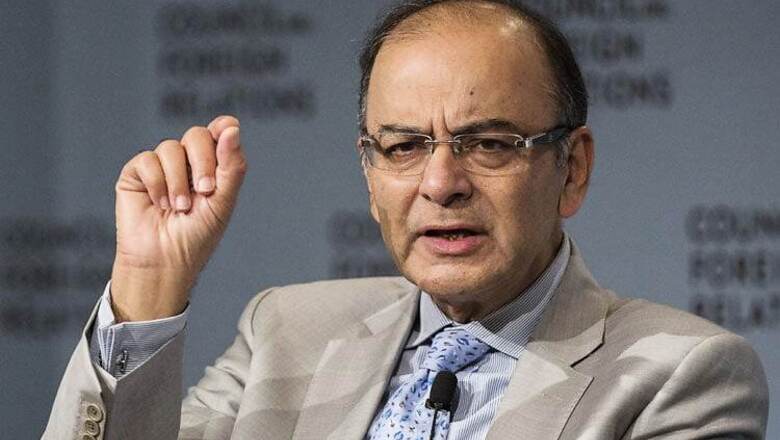
views
Washington: Noting that a new aspirational India expects early results and decisive governance, Finance Minister Arun Jaitley has exuded confidence that with the government pursuing economic reforms, policy changes, pumping in money in key sectors like infrastructure, along with a good monsoon, the path to 10 per cent growth is not impossible.
"This (10 per cent growth rate) is reasonably possible. That is where India's potential is," Jaitley told an audience here soon after his arrival in Washington on the second leg of his nine-day US tour to attract American investors. "It is important that we reach that target, but it is more important that we sustain it for a couple of years," the Finance Minister said in his remarks on 'Putting India back on track: A pathway to double-digit growth', at the American Enterprise Institute (AEI), a top US think-tank.
"If we are able to sustain it for a couple of years, then I think, we will be able to have direct benefits as far as India is concerned, more jobs, better economy and hopefully over the next 10 years or so deplete the poverty levels in the segments that are more impacted by it," Jaitley said giving his overview of his government's economic policies. "I can't say as to what figure India's growth rate would achieve. But I am certainly of the view that the seven-and-a- half per cent growth that we are presently at is not India's optimum potential. This year, we hope to touch about eight per cent," he said.
Once the impact of all policy changes made by the new Indian government and investments in key areas like infrastructure, agriculture and industry is felt, Jaitley said, "I think there could be a significant growth". If inflation stays at moderate level, one should logically expect the interest rates to go down, which would directly impact and add to the Indian economy", he said. "Once the cumulative effect of all these plus favorable global winds, I think the journey between eight and 10 per cent is not an impossible journey," Jaitley said. He said that India reached this seven plus per cent growth rate in the backdrop of a terrible monsoon last year and there was a second round of crop destruction in March this year.
The manufacturing sector was almost crawling, and the growth rate was around five per cent, Jaitley said. "Now with a lot more money being invested in infrastructure and governments even conducting their fiscal policy in order to help the manufacturing sector, there is a significant growth possible as far as this area is concerned," he said.
"Therefore the Make in India programme, concentration on manufacturing, the impact of all these steps - coal mine auctions - I think in the coming years is going to up India's manufacturing sector significantly," he said, adding that the government has taken steps to boost up the small scale industries in the rural areas. Hopefully, with a better monsoon this year, agriculture must do better and would add to the nation's economy, he said.
Goods and Services Tax (GST) has the potential to add at least one per cent to the GDP of India, he said adding that last year, India grew by 7.3 per cent in terms of GDP. "In terms of fiscal deficit, from an all-time high of six per cent plus, we brought it down to four per cent. Our current account deficit, last quarter was 0.2 which is quite an exciting figure for us. Capital formation has improved. Some trickling effect on the infrastructure area has just about started. Power sector has performed quite well," he said.
He said the government still has pending work at hand. "The Land Bill is a difficult challenge...I think, we will have to fight it out and explain the benefits of the land bill because it is intended for the development of India's rural areas," he said adding that he is very positive on GST. "We have several other reforms in the pipeline. The bankruptcy court, reducing the number of permissions required for setting up businesses in India, a public procurement law, a law on expeditious execution of disputes relating to big projects," Jaitley said.
The social programmes of the government, including the Swachh Bharat Abhiyan, have become mass movements and therefore are producing greater results, he said.




















Comments
0 comment